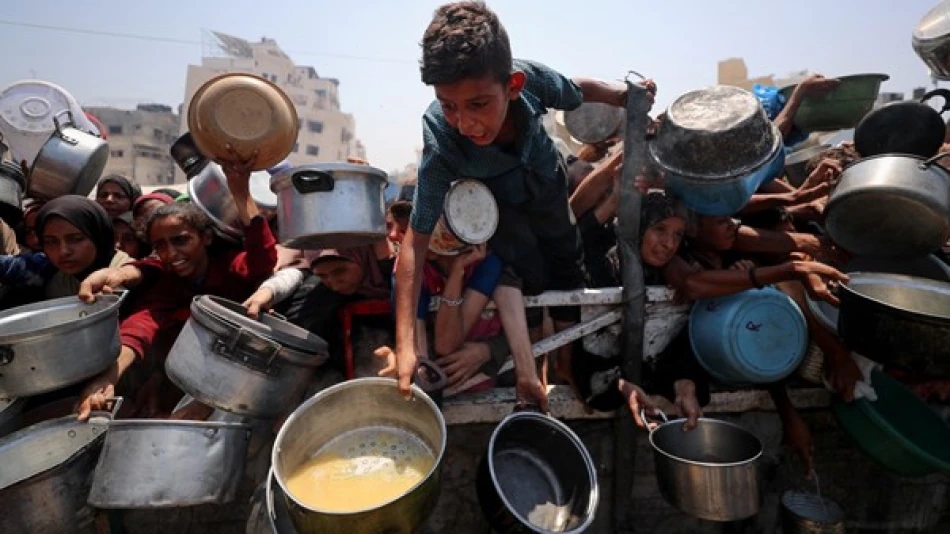
World Leaders Discuss Strategies for Gaza Amid Ongoing Tensions
Europe's Big Three Signal Coordinated Action on Gaza Crisis as Diplomatic Pressure Mounts
German Chancellor Friedrich Merz, French President Emmanuel Macron, and British Prime Minister Keir Starmer held urgent phone consultations Saturday, signaling unprecedented European unity on Middle East policy as the humanitarian catastrophe in Gaza deepens. The trilateral coordination marks a potential shift toward more assertive European diplomacy, with leaders hinting at concrete steps beyond traditional diplomatic statements.
A Rare Display of European Unity
The Saturday morning call revealed what Merz described as "significant consensus" among the three leaders, with the German chancellor announcing that coordinated actions would follow "in the coming days." This level of synchronization between Europe's largest economies is notable, particularly given their historically divergent approaches to Middle East conflicts.
The timing suggests urgency. Just one day earlier, the three nations issued a joint statement calling for an immediate ceasefire in Gaza—a move that already represented a diplomatic escalation from previous European positions.
Beyond Statements: What "Further Measures" Could Mean
The leaders' promise to take "further measures" to support an immediate ceasefire raises questions about what concrete actions Europe might deploy. Historical precedent suggests several possibilities: coordinated sanctions, restrictions on arms sales, or enhanced diplomatic pressure through EU mechanisms.
Economic Leverage at Play
Collectively, Germany, France, and Britain represent significant economic and political weight. Germany remains Europe's largest economy, France holds considerable influence in international institutions, and Britain, despite Brexit, maintains substantial diplomatic reach through its UN Security Council seat and intelligence partnerships.
Their joint emphasis on Israel's obligations under international humanitarian law suggests potential legal pathways, possibly including support for International Criminal Court proceedings or formal complaints through UN mechanisms.
A Shift in European Middle East Strategy
This coordinated approach marks a departure from Europe's traditionally fragmented Middle East policy. Unlike previous crises where European nations often spoke with different voices, the current alignment suggests lessons learned from past diplomatic ineffectiveness.
The focus on humanitarian access—specifically demanding Israel lift all restrictions on aid delivery—addresses one of the most immediate and measurable aspects of the crisis. This tactical approach allows for clear benchmarks of success or failure, unlike broader political negotiations.
Implications for Regional Dynamics
The European coordination comes as regional dynamics shift rapidly. With the United States maintaining its traditional support for Israel while facing domestic pressure over civilian casualties, European nations may see an opportunity to fill a diplomatic vacuum.
The emphasis on "lasting security and peace for Israelis, Palestinians, and the entire region" signals European ambitions for a broader role in post-conflict arrangements. This positioning could prove significant if and when serious peace negotiations resume.
Testing Diplomatic Credibility
The real test will be whether these three leaders can translate their stated unity into effective action. European credibility in Middle East mediation has historically been limited by perceptions of ineffectiveness and internal divisions.
The promise of coordinated steps "in the coming days" creates a self-imposed deadline that will quickly reveal whether this represents genuine policy coordination or merely synchronized rhetoric. For European diplomacy in the Middle East, the stakes of this moment extend far beyond the immediate crisis.
Most Viewed News

 Layla Al Mansoori
Layla Al Mansoori






